Pakistan, like many developing countries, faces significant challenges in managing its waste effectively. The country generates millions of tons of waste every year, with a large portion of it being dumped in open spaces, waterways, and landfills, causing severe environmental and health issues. However, in recent years, Pakistan has seen a surge in innovations in waste management, aiming to tackle this pressing problem. In this blog, we will explore the latest advancements and initiatives in waste management in Pakistan, highlighting their impact, benefits, and potential for a sustainable future.
The Current State of Waste Management in Pakistan
Pakistan’s waste management system is still in its infancy. The country lacks a comprehensive waste management policy, and the existing infrastructure is inadequate to handle the growing amount of waste. The majority of the waste is collected and disposed of in an unregulated manner, leading to:
- Environmental Pollution: Uncontrolled dumping of waste in waterways and landfills contaminates soil, air, and water, posing a significant threat to biodiversity and human health.
- Health Risks: Exposure to untreated waste leads to the spread of diseases, such as cholera, typhoid, and dysentery, causing a significant burden on the healthcare system.
- Economic Losses: Inadequate waste management results in the loss of valuable resources, including recyclables, and hinders economic growth.
Innovations in Waste Management in Pakistan
Fortunately, Pakistan has started to witness a wave of innovations in waste management, driven by government initiatives, private sector investments, and community-led projects. Some of the notable advancements include:
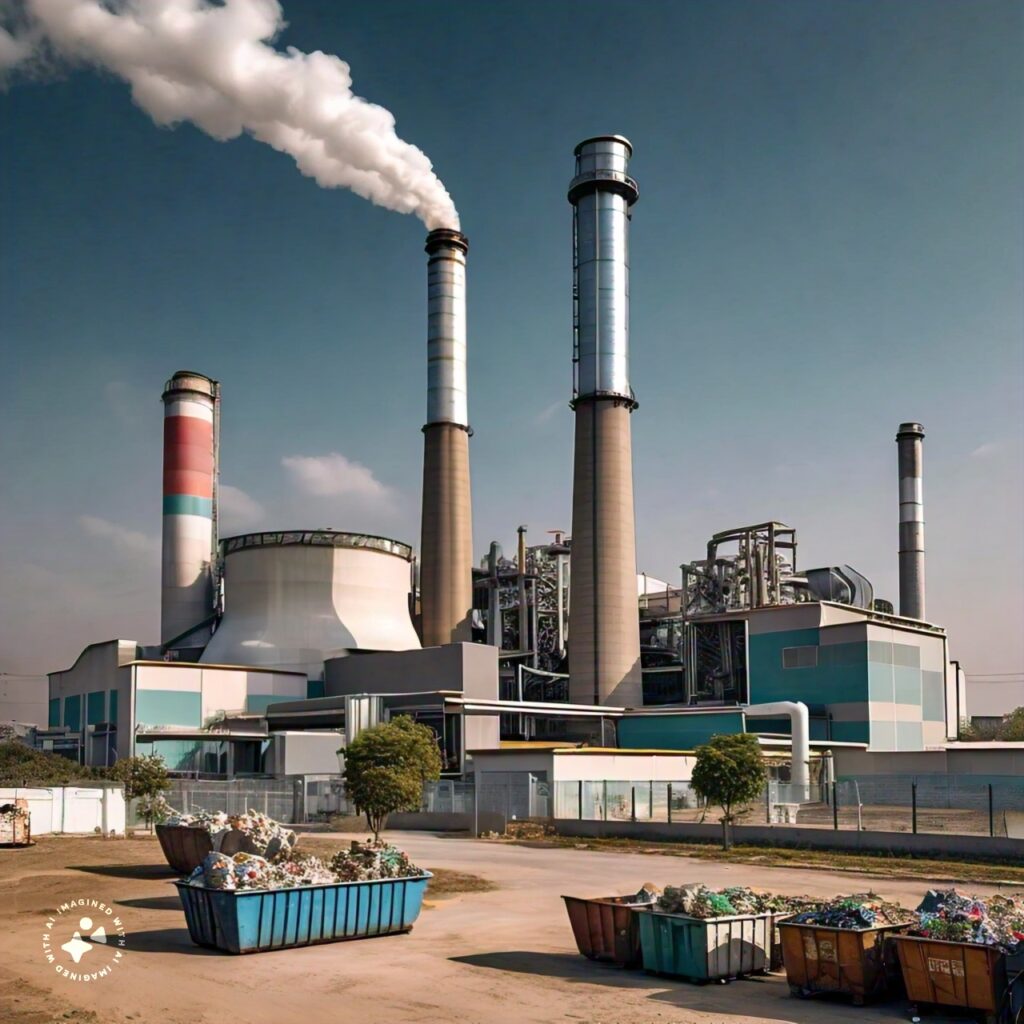
1. Waste-to-Energy Plants
Pakistan has seen the establishment of several waste-to-energy plants, which convert waste into electricity and heat. These plants not only reduce the volume of waste sent to landfills but also generate clean energy, contributing to the country’s renewable energy targets.
2. Recycling Initiatives
Various recycling programs have been launched in major cities, focusing on segregating and processing recyclable materials like paper, plastic, glass, and metal. These initiatives create jobs, conserve natural resources, and reduce the need for landfill space.
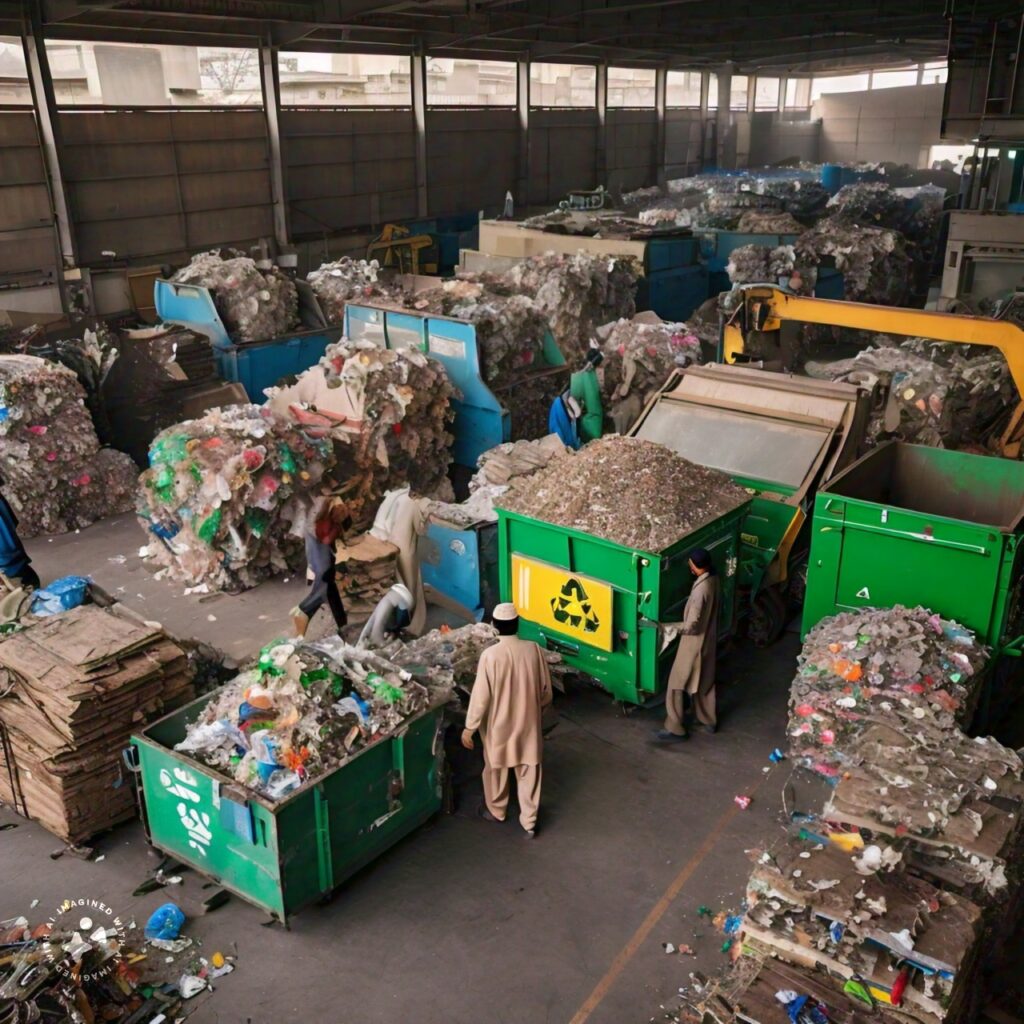
3. Composting and Anaerobic Digestion
Composting and anaerobic digestion technologies are being used to process organic waste, producing nutrient-rich fertilizers and biogas. This approach reduces greenhouse gas emissions, supports sustainable agriculture, and generates energy.
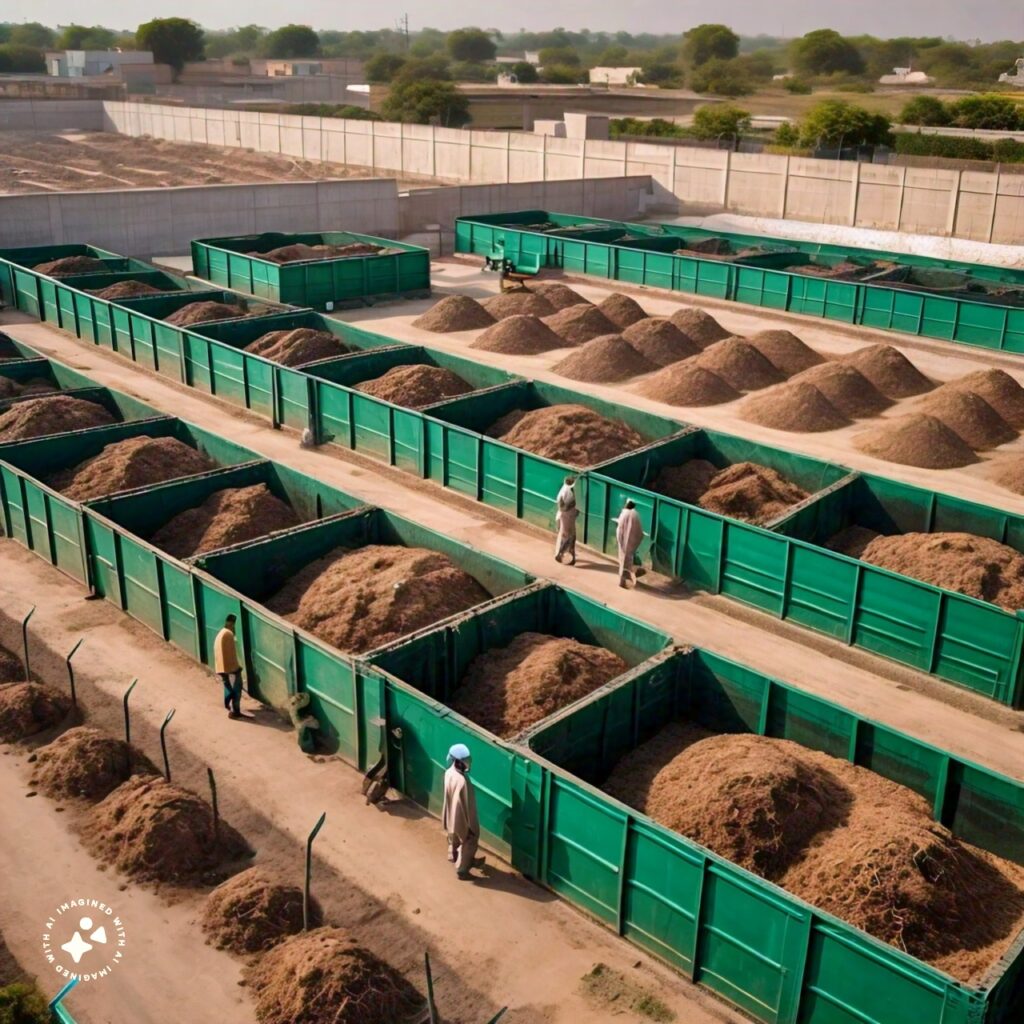
4. Smart Waste Management Systems
Pakistan has introduced smart waste management systems, leveraging technology to optimize waste collection, transportation, and disposal. These systems enable real-time monitoring, efficient route planning, and data-driven decision-making.
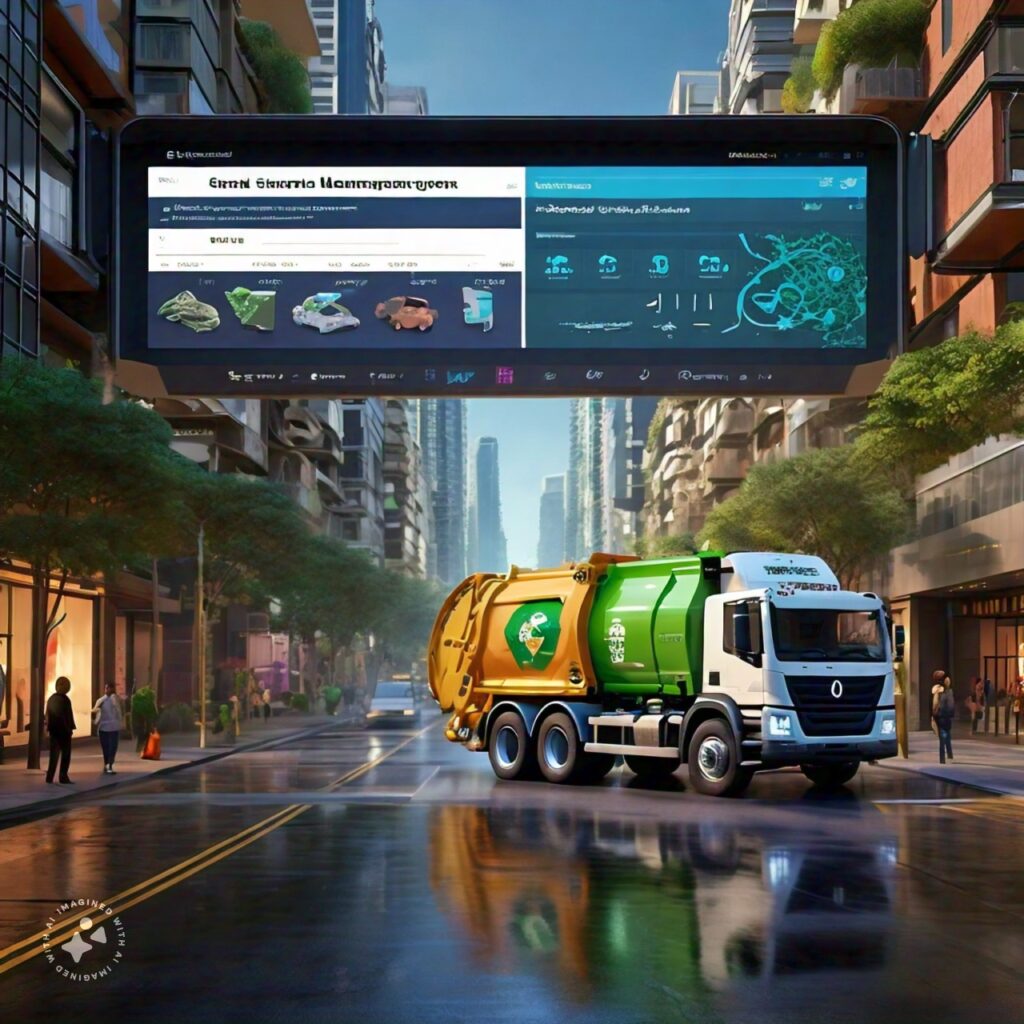
5. Community-Led Waste Management Initiatives
Grassroots initiatives, such as community-led clean-ups, awareness campaigns, and waste reduction programs, are promoting behavioral change and encouraging citizens to take ownership of waste management in their neighborhoods.
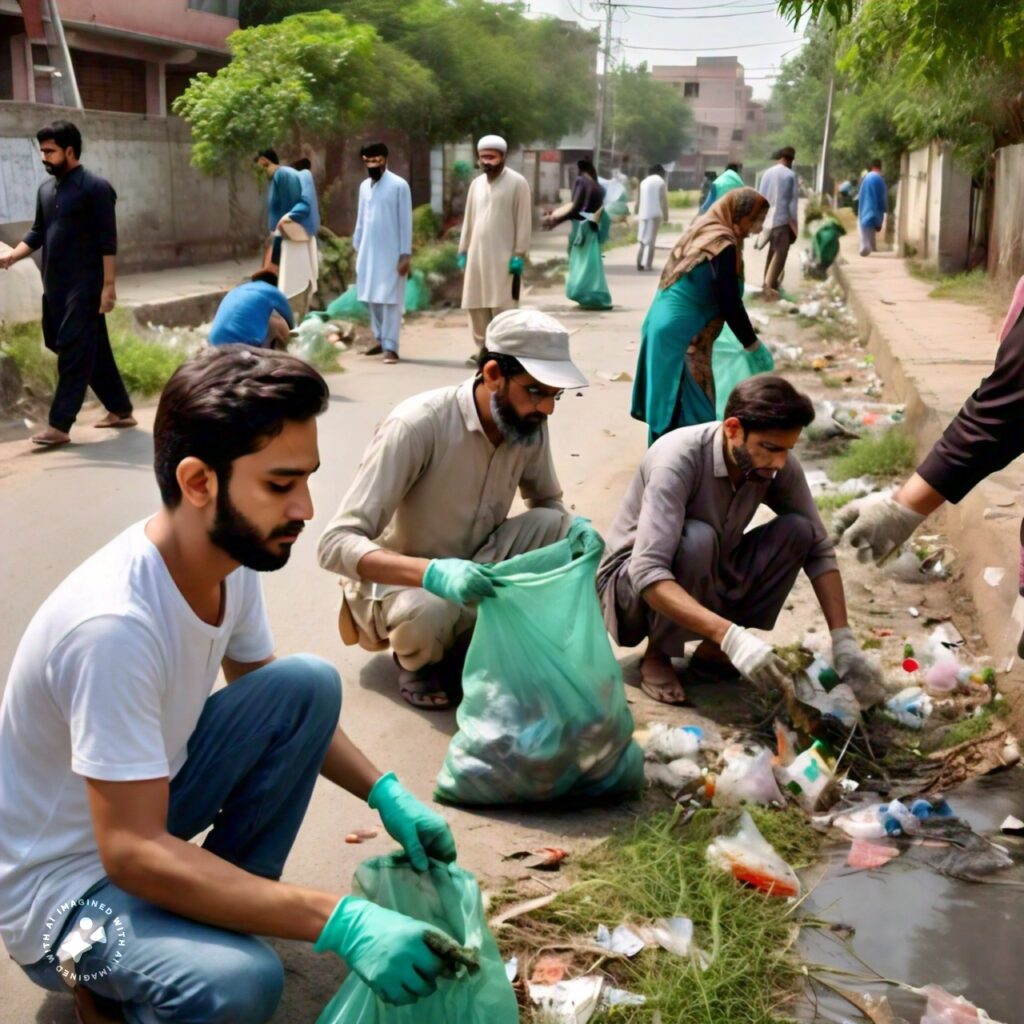
Benefits of Innovations in Waste Management
The innovations in waste management in Pakistan offer numerous benefits, including:
- Improved Environmental Health: Effective waste management reduces pollution, protects biodiversity, and conserves natural resources.
- Economic Growth: Waste management creates jobs, stimulates economic activity, and attracts investments in the sector.
- Enhanced Public Health: Proper waste disposal and sanitation reduce the risk of diseases, improving public health and well-being.
- Increased Resource Efficiency: Recycling, composting, and waste-to-energy initiatives conserve resources, reduce waste, and promote sustainable development.
Challenges and Opportunities
Despite the progress made, Pakistan still faces significant challenges in waste management, including:
- Lack of Infrastructure: Inadequate waste collection, transportation, and disposal infrastructure hinders the effective implementation of waste management initiatives.
- Insufficient Funding: Limited financial resources and inadequate budget allocation restrict the scale and scope of waste management projects.
- Social and Cultural Factors: Changing public behavior and perceptions towards waste management remains a significant challenge.
However, these challenges also present opportunities for:
- Investment and Collaboration: Public-private partnerships, international collaborations, and innovative financing models can help address infrastructure and funding gaps.
- Capacity Building and Education: Training programs, awareness campaigns, and community engagement can promote behavioral change and build a skilled workforce.
- Policy and Regulatory Frameworks: Strengthening policy and regulatory frameworks can provide a supportive environment for waste management initiatives to flourish.
Conclusion
Innovations in waste management in Pakistan are crucial for achieving a sustainable future. The country’s progress in waste-to-energy, recycling, composting, smart waste management, and community-led initiatives demonstrates its potential for growth and development. However, challenges persist, and addressing these requires a collaborative effort from the government, private sector, and civil society. By leveraging technology, investing in infrastructure, and promoting behavioral change, Pakistan can create a cleaner, healthier, and more prosperous environment for its citizens.


